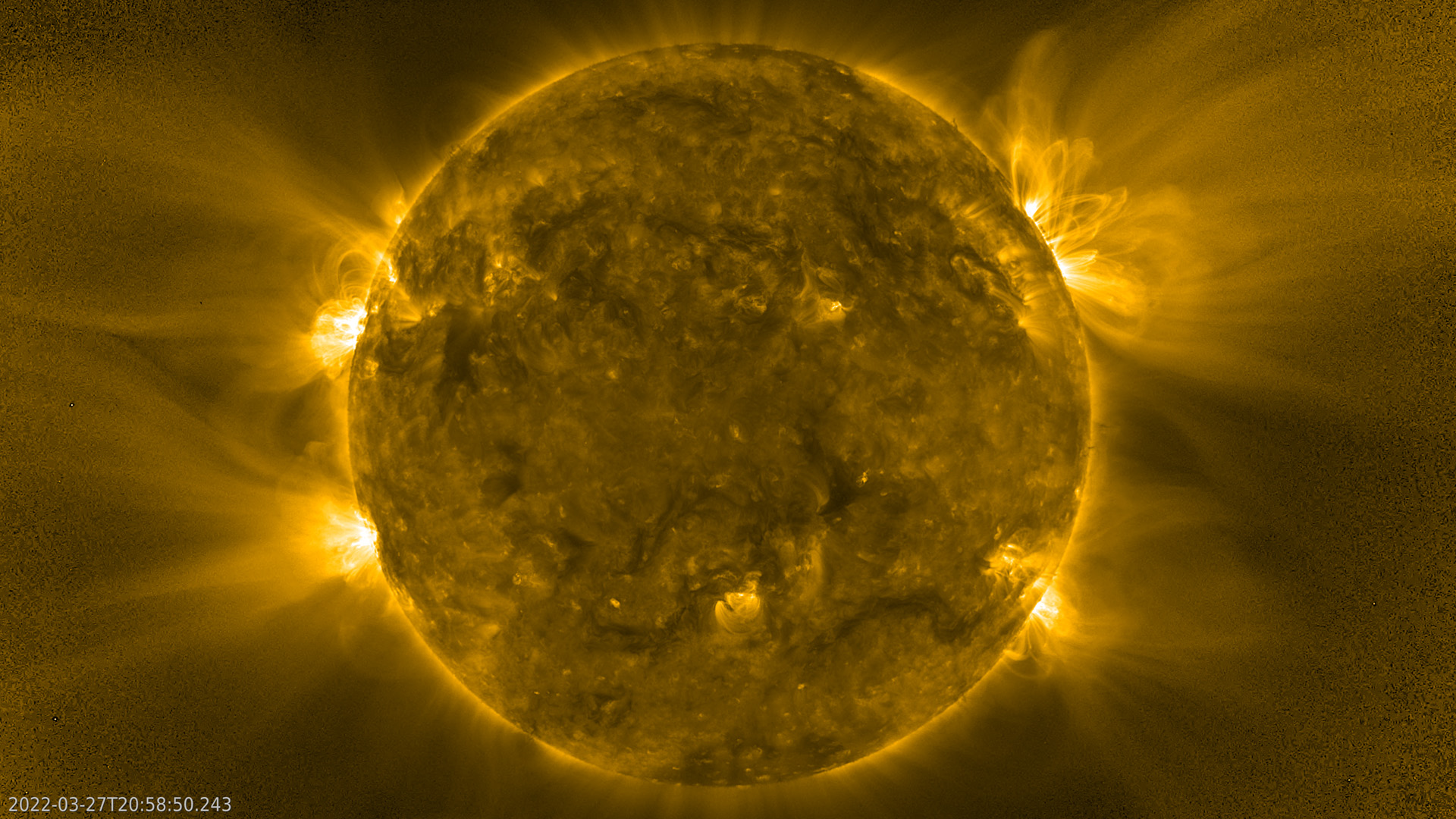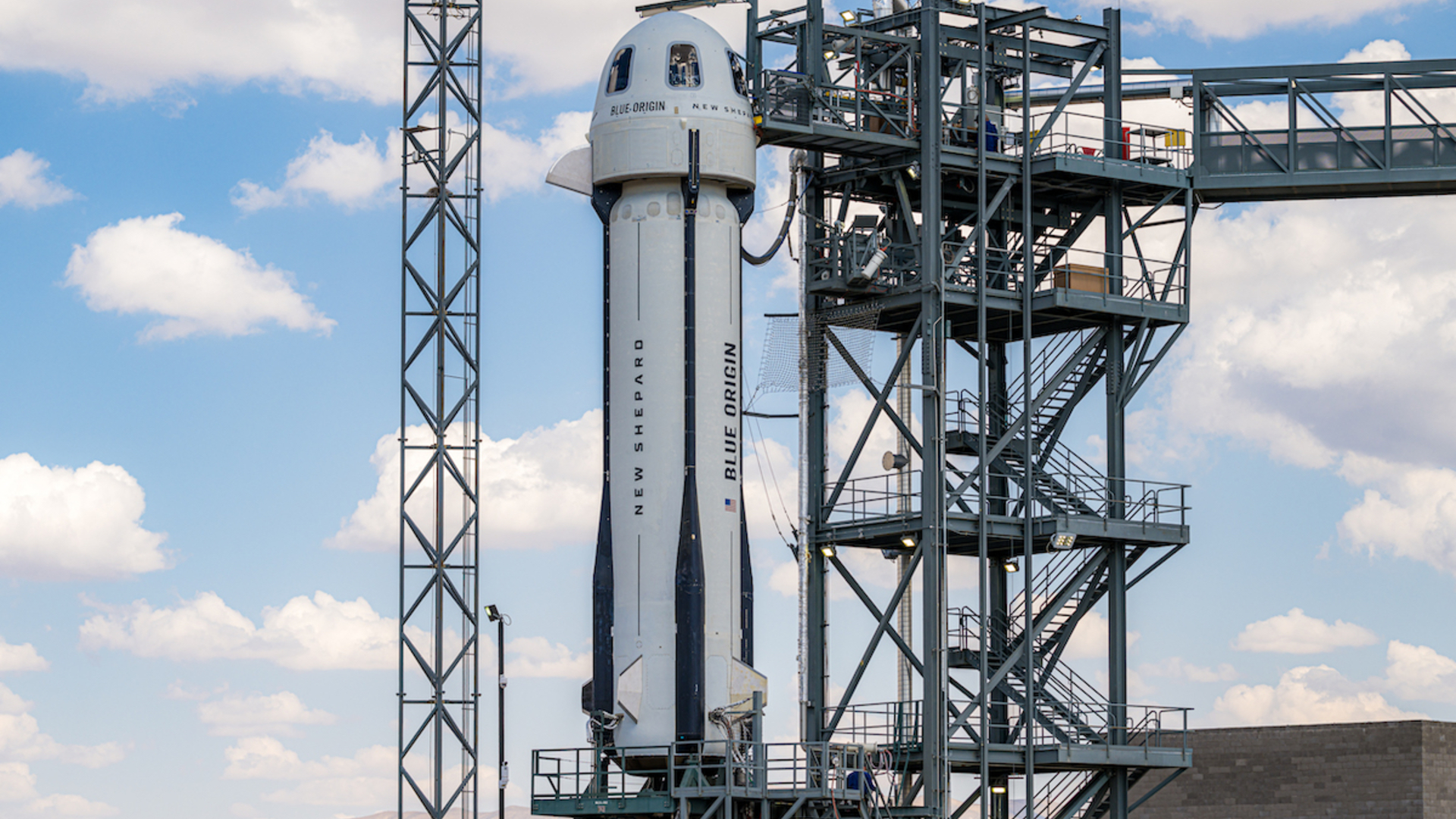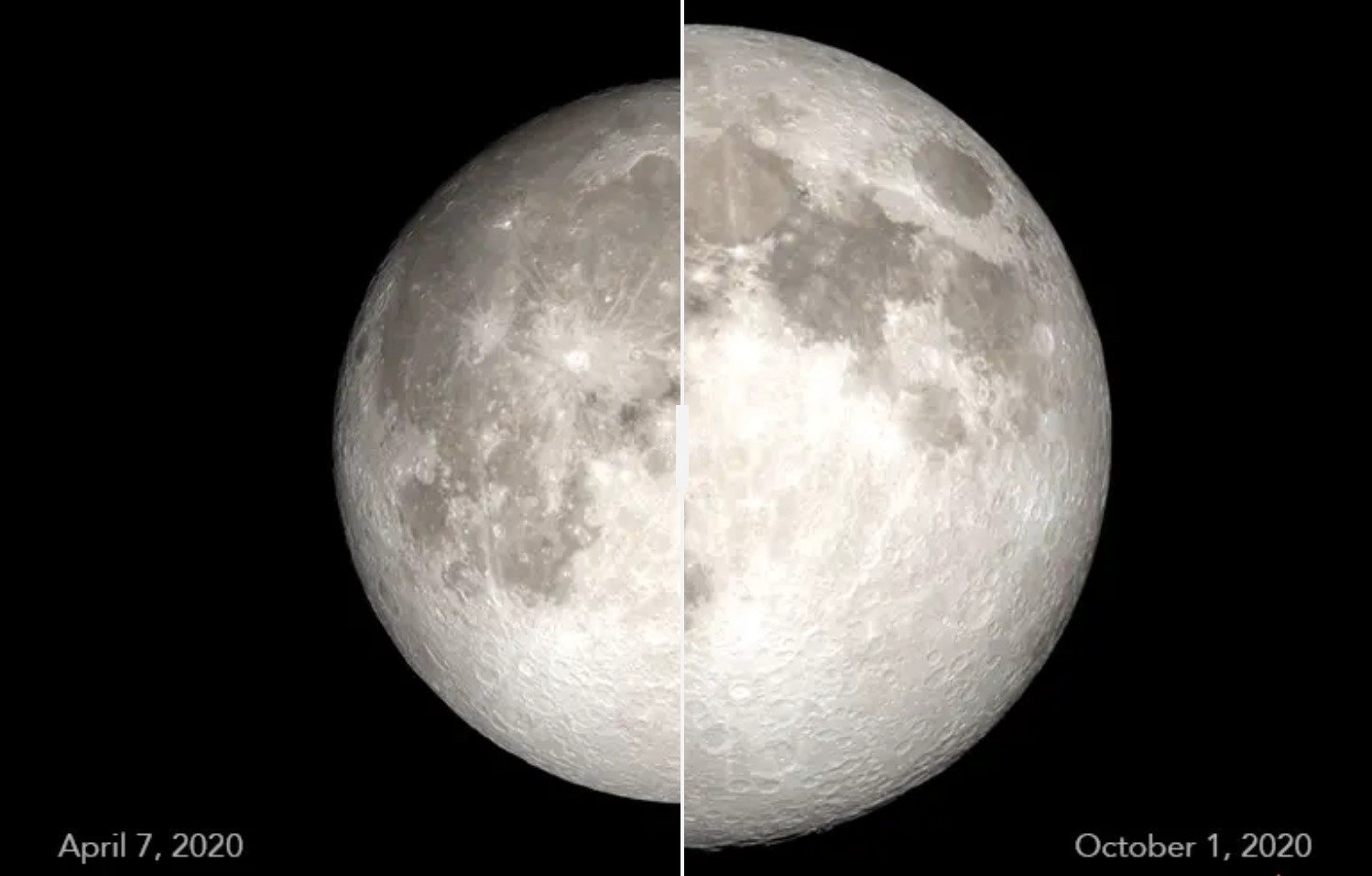What's it like to buzz an Artemis SLS moon rocket with a supersonic jet? NASA's Artemis 2 commander tells all (video)
"A bunch of us are like, 'We've got to fly over that vehicle.'"
The first moon commander in 50 years grins as a picture of jets and a lunar rocket flashes up on the screen in front of him. "That was a fun day."
NASA astronaut Reid Wiseman is the commander of Artemis 2, which aims to fly four people around the moon in 2024 or so. During an exclusive with Space.com on Dec. 18, however, we talked over Zoom about the uncrewed Artemis 1 mission that launched in late 2022 and successfully tested out most of the Orion spacecraft and Space Launch System (SLS) rocket systems to ready for Wiseman's crew. Hence, the jet picture.
Wiseman was among a small group of astronauts flying the famous T-38 jet trainers past the Artemis 1 SLS on the launch pad on Aug. 23, 2022. Nobody knew it back then, but three of the four Artemis 2 crew were in the tight formation: Wiseman, NASA mission specialist Christina Koch and Canadian Space Agency mission specialist Jeremy Hansen. (Only absent was NASA pilot Victor Glover, who was away on other duties at the time.)
"That picture evokes a lot of emotion. Most of it is positive," Wiseman joked. It took months of logistics, he recalled, to get the permissions and the time for the now-iconic flyby.
Related: NASA astronauts buzz Artemis 1 SLS rocket in incredible jet flyby (photos)
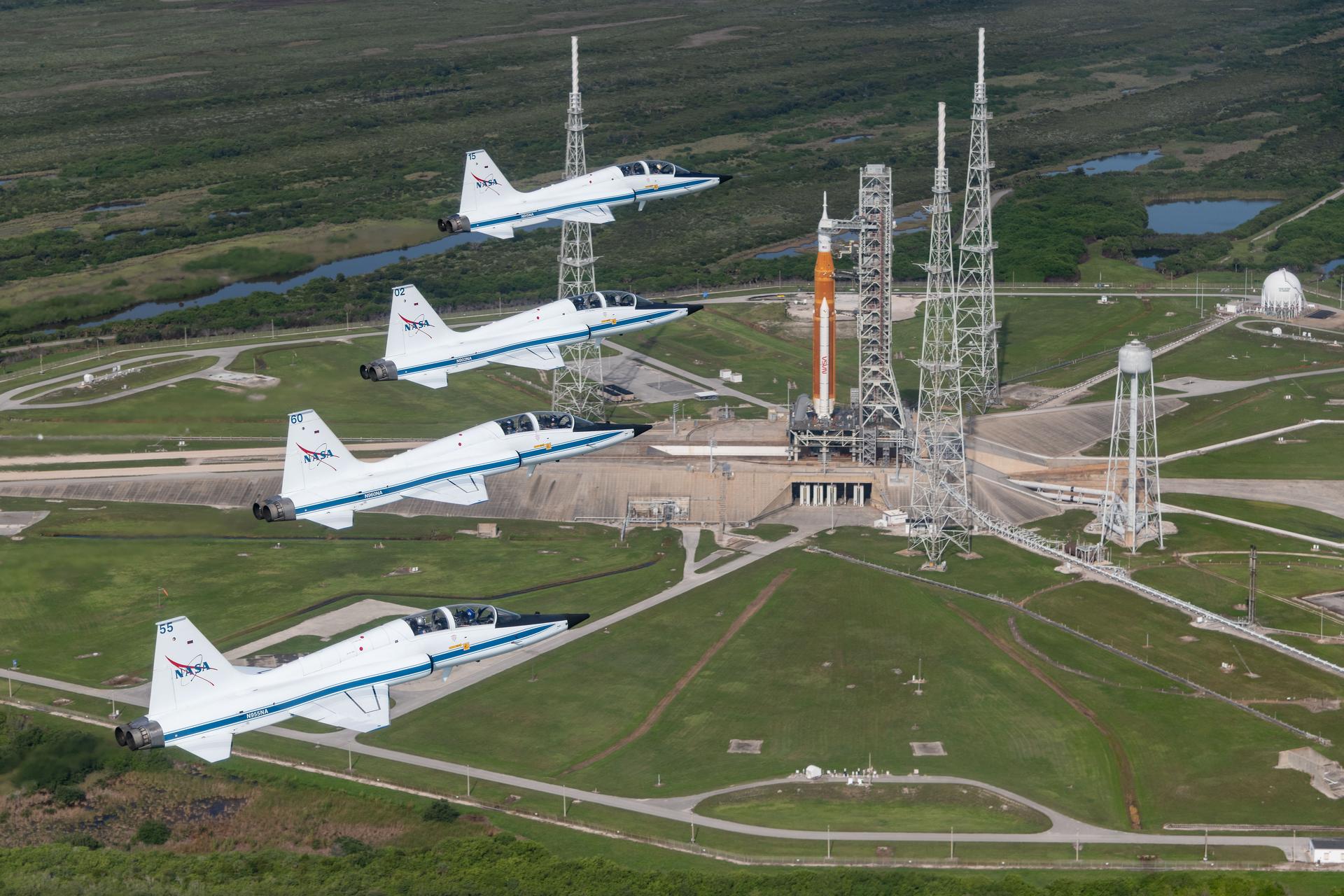
In 2022, Wiseman was chief of the astronaut office and responsible for all NASA astronaut assignments to spaceflights. (He stepped down from the role in November 2022 to be eligible for active duty again, just in time for the big Artemis 2 announcement on April 3, 2023.)
Wiseman told Space.com he would stroll the halls of NASA's Johnson Space Center, where the astronaut office is headquartered. He would look at the photos of the International Space Station and the space shuttle on the walls. But for Artemis, a brand-new program that aims to land humans on the moon in the 2020s and follow in the footsteps of the Apollo program of the 1960s and 1970s? "We really didn't have any picture that kind of hit home."
Get the Space.com Newsletter
Breaking space news, the latest updates on rocket launches, skywatching events and more!
Artemis 1 first rolled out to Pad 39B at NASA's Kennedy Space Center (KSC) on March 17, 2022 to begin several months of testing (and a few journeys back and forth to NASA's Vehicle Assembly Building). Wiseman said the astronaut office had a strong reaction to Artemis 1 sitting on the pad for the first time: "A bunch of us are like, 'We've got to fly over that vehicle.' "
Read more: What 8,000 hours flying military jets taught 2 Canadian astronauts
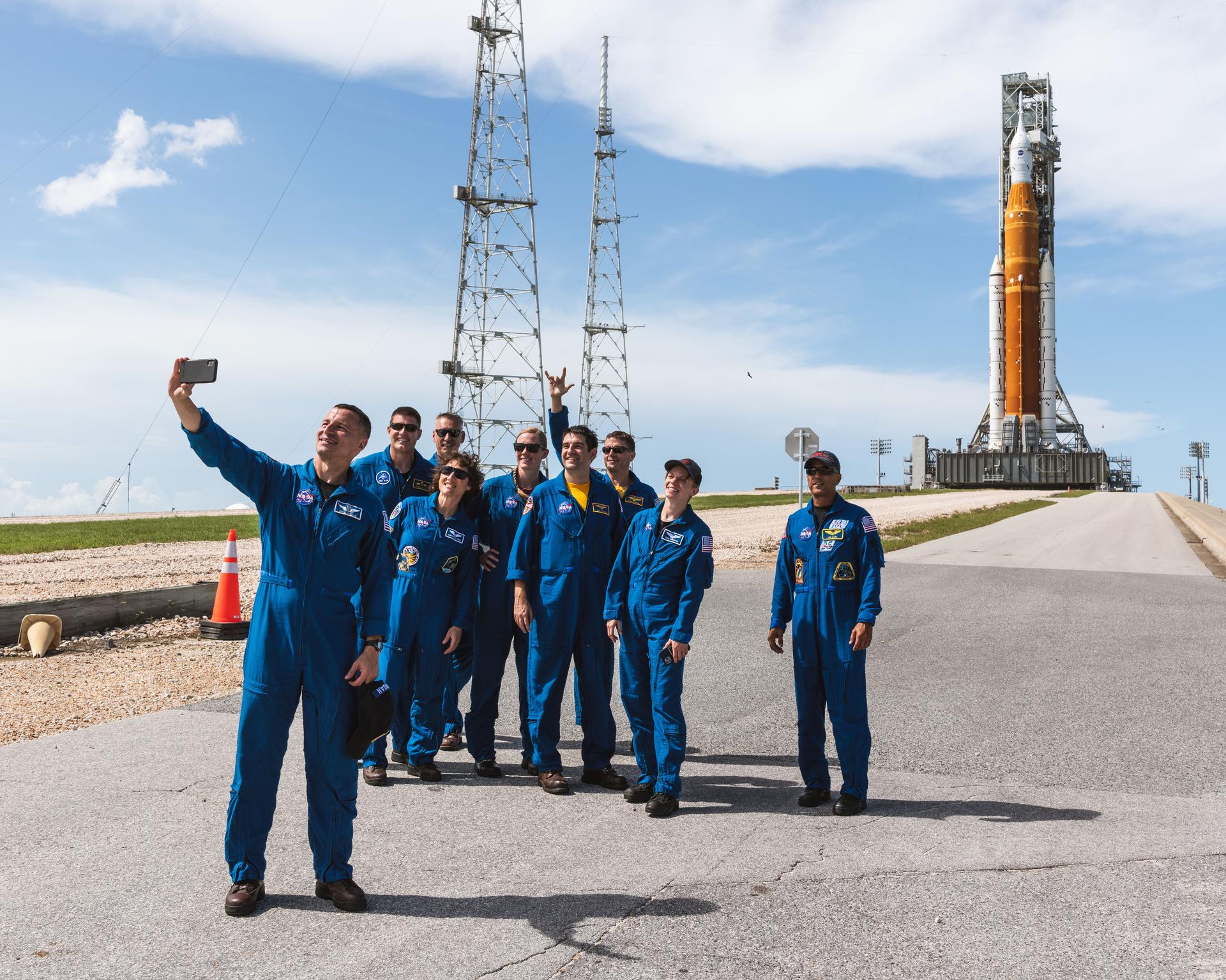
For sure there was the sheer excitement of flying in formation, and the usefulness of the practice time for the astronauts (who need to maintain flying proficiency for their work.) But Wiseman also saw a public relations opportunity: "We've got to remind people that there's humans involved, and we fly airplanes, and we have spacecraft. This is a key moment for NASA."
Wiseman and fellow naval aviator and astronaut Matthew Dominick (now commander of the SpaceX Crew-8 mission) held numerous meetings to plan the procedures. "He ends up not even being in the picture," Wiseman lamented of Dominick, after all that work.
"It cost him several months of his life to get this through all the safety wickets," Wiseman continued, laughing. "There were so many clearances to get to fly by that national asset on the launch pad. But in the end, we decided we had to persevere and give that a shot."
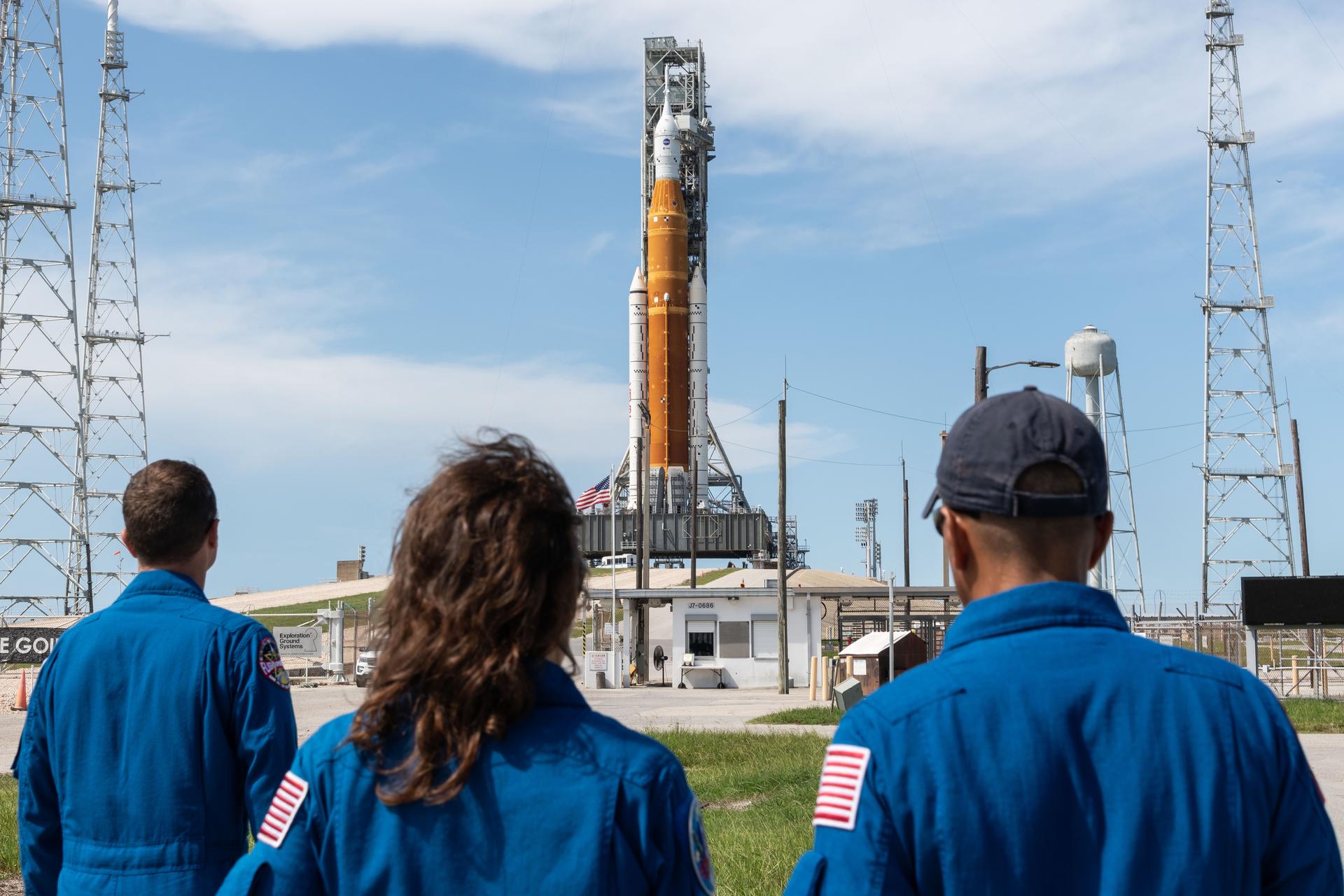
All told, five T-38s were involved in the flyby: Four in the image with eight individuals inside, and one out of frame crewed by NASA photographer Josh Valcarcel and experienced "chase plane" pilot and NASA astronaut candidate Jack Hathaway. The group stayed in crew quarters at NASA's Kennedy Space Center the night before to get ready for the big day.
Read more: 1 year after Artemis 1 launch, NASA readies Artemis 2 to shoot for the moon again (video)

Wiseman is a graduate of the U.S. Naval Test Pilot School and former test pilot whose programs include the F-35 Lightning II and F-18 weapons separation. He also made two deployments to the Middle East and has thousands of hours in combat aircraft, not to mention 165 days of experience in space. Nevertheless, Wiseman found surprises during the pad flyby.
"We woke up the next day, and we did this mission flying over," Wiseman recalled. "I forgot how exhausting it is to fly close formation, down low. We were all very tired at the end of a short, 45-minute flight. But it was just an awesome experience."
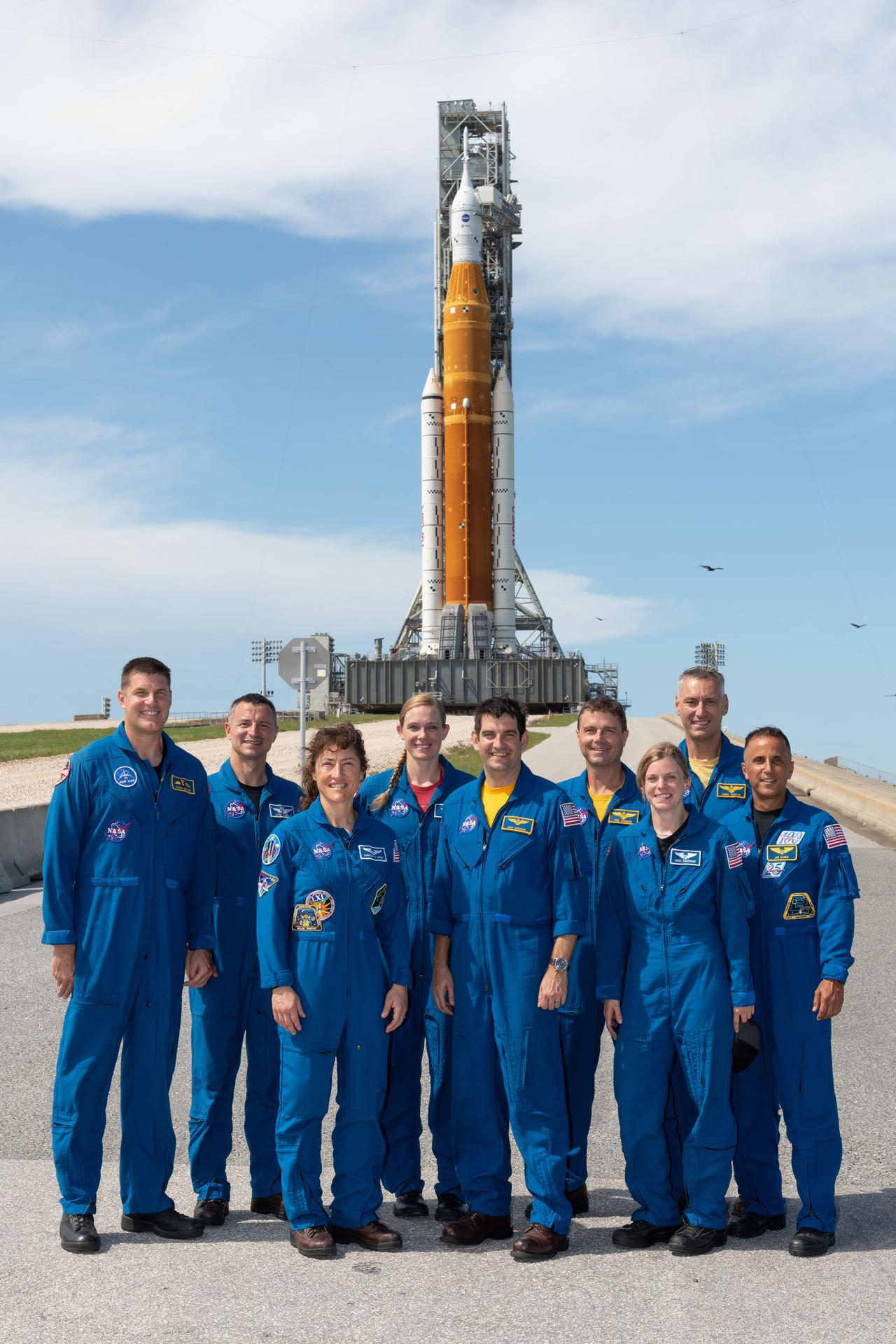
Wiseman said the flyby had numerous personal touchstones. He flew with two people who would be on his Artemis 2 crew. He was in the air with NASA pilot Chris Condon, who Wiseman has known since 1999. Also, the group flew the same kind of training aircraft as Apollo 11 astronaut Neil Armstrong, the first person to walk on the moon on July 20, 1969. On top of all that was seeing a moon rocket, rated to carry passengers, on a launch pad that once hosted Apollo and space shuttle launches.
"That entire event was just a marquee moment of looking at the future of Artemis on a historic launch pad," Wiseman said. "There was so much emotion tied to that day."
Join our Space Forums to keep talking space on the latest missions, night sky and more! And if you have a news tip, correction or comment, let us know at: community@space.com.

Elizabeth Howell (she/her), Ph.D., was a staff writer in the spaceflight channel between 2022 and 2024 specializing in Canadian space news. She was contributing writer for Space.com for 10 years from 2012 to 2024. Elizabeth's reporting includes multiple exclusives with the White House, leading world coverage about a lost-and-found space tomato on the International Space Station, witnessing five human spaceflight launches on two continents, flying parabolic, working inside a spacesuit, and participating in a simulated Mars mission. Her latest book, "Why Am I Taller?" (ECW Press, 2022) is co-written with astronaut Dave Williams.







